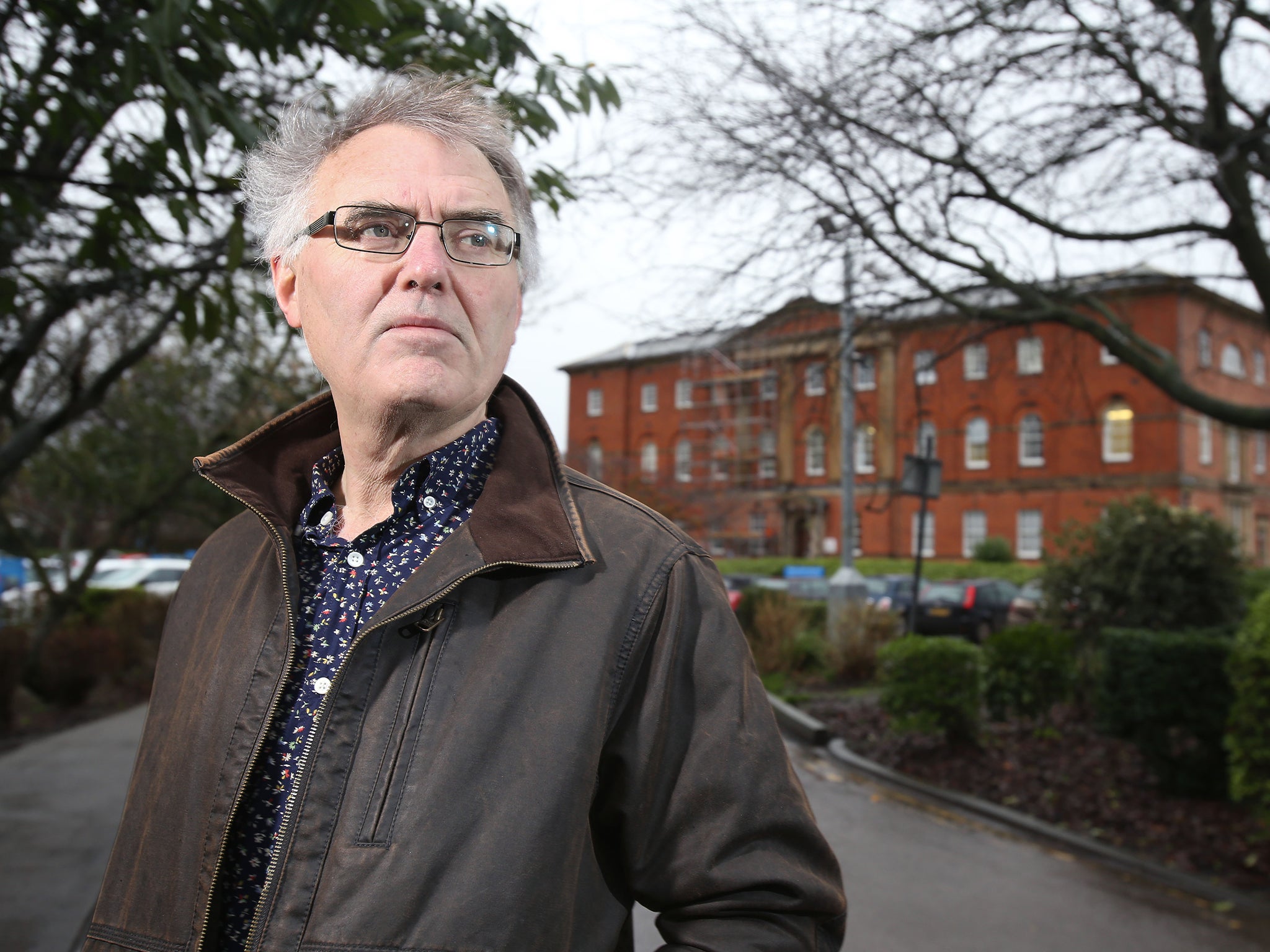Vulnerable patients moved 50 miles after closure of York psychiatric hospital
It is believed that York is now the only major city in the country without an NHS psychiatric hospital

Your support helps us to tell the story
From reproductive rights to climate change to Big Tech, The Independent is on the ground when the story is developing. Whether it's investigating the financials of Elon Musk's pro-Trump PAC or producing our latest documentary, 'The A Word', which shines a light on the American women fighting for reproductive rights, we know how important it is to parse out the facts from the messaging.
At such a critical moment in US history, we need reporters on the ground. Your donation allows us to keep sending journalists to speak to both sides of the story.
The Independent is trusted by Americans across the entire political spectrum. And unlike many other quality news outlets, we choose not to lock Americans out of our reporting and analysis with paywalls. We believe quality journalism should be available to everyone, paid for by those who can afford it.
Your support makes all the difference.Vulnerable mental-health patients are been treated miles from home because their 240-year-old psychiatric hospital was found to be unsafe.
Bootham Park Hospital in York was shut down in September after inspectors said patients treated at the 18th-century building were at risk of suicide or serious harm because NHS managers had not removed potential ligature points.
The patients were moved from the Grade I-listed building to hospitals up to 50 miles away; staff in community care and other mental health services are still based at the site.
Now former staff, patients and carers have set up an action group to challenge the closure of the hospital, which was built as an asylum in the 1770s, amid concerns about the impact on patients’ health. It is believed that York is now the only major city in the country without an NHS psychiatric hospital.
Rachael Maskell, Labour MP for York Central, has raised concerns in Parliament after staff were given five days’ notice to shut the building. She has also called on the Secretary of State for Health, Jeremy Hunt, to launch a full inquiry, with NHS chiefs squabbling over who is to blame.
Patients in the hospital’s 29-bed psychiatric unit were transferred to other hospitals as far away as Middlesbrough and Darlington. Outpatient appointments were also moved, and families say patients were left in limbo about where their next appointments would be.
Mick Hickling, 70, who cares for an outpatient who has been waiting for an appointment since the hospital closed, said: “Different parts of the NHS are engaged in a turf war over Bootham Park while seriously ill people are living each day on the edge. The last thing they need is sudden change. Closing the hospital and shutting out people who desperately need care was not the answer.”
NHS chiefs say they are committed to building a new hospital, although it is unlikely to open before 2019. But campaigners are calling for Bootham Park to be refurbished and made safe until then.
Dr Bob Adams, a consultant psychiatrist who worked at Bootham Park and a leading member of the Mental Health Action York campaign group, said: “I was shocked and horrified by Bootham Park’s closure. The risk of closing the hospital and transferring patients out of the area is greater than any risks present in the hospital building. Any issues with the building could have been fixed, but now the hospital has been closed and patients moved to Middlesbrough and Darlington.”
Inspectors from the Care Quality Commission first raised concerns about Bootham Park following an inspection in 2013, which deemed the building “unsafe and unsuitable”. The CQC’s latest inspection in September this year raised further concerns about the risk of suicide because it said the Leeds and York Partnership NHS Foundation Trust, which ran the service, had been unable to remove all potential ligature points because of the building’s listed status.
Inspectors also said patients were “at risk of serious scalding” because of unregulated hot water temperatures. It also said the layout of the building meant nursing staff could not observe all parts of the wards.
The closure happened as services at the hospital were being transferred to another NHS trust: the Tees, Esk and Wear Valleys NHS Foundation Trust. The CQC was unable to process that trust’s application to re-register the hospital because the facilities had been found to be unsafe. The Leeds and York Partnership said in a report to councillors in October that the closure could have been avoided if a work programme agreed with health commissioners and NHS Property Services, which owned the building, had been completed on time.
But NHS Property Services says the CQC cited insufficient staff numbers, poor hygiene and poor infection control as motives for the closure, and these were the responsibility of the Leeds and York Partnership. It said “significant work” was undertaken to try to improve the premises, with NHS Property Services providing £1.7m of investment.
The Tees, Esk and Wear Valleys Trust says outpatient clinics continue to be held in York and it hopes to move them back to Bootham Park early in the new year. Ruth Hill, the trust’s director of operations for York, said: “Our aim is to have a new hospital in York. Unfortunately, this is unlikely before 2019 and in the meantime we need to bring adult inpatient services back to York as soon as possible.” A dementia care centre in York is now being adapted into an adult mental health inpatient unit and is set to re-open next summer.
Join our commenting forum
Join thought-provoking conversations, follow other Independent readers and see their replies
Comments